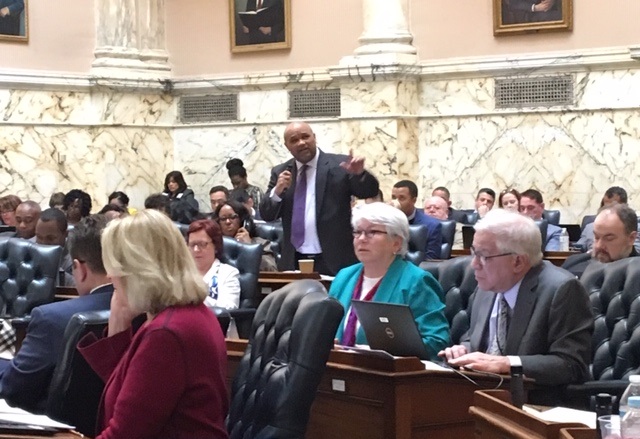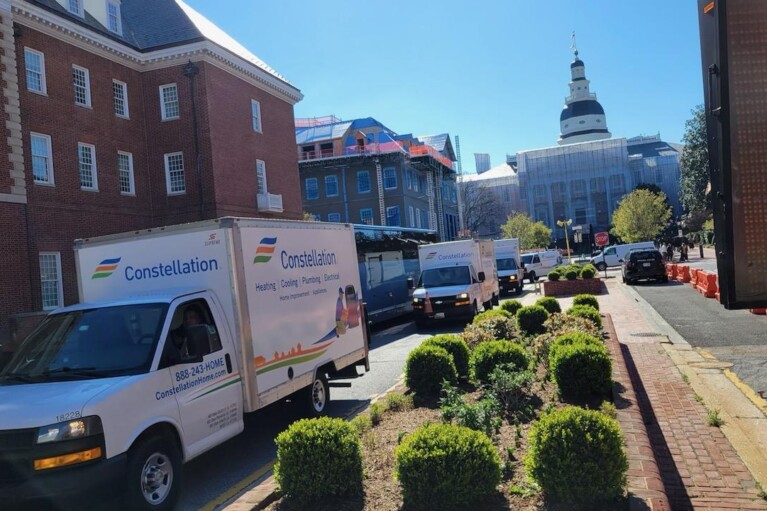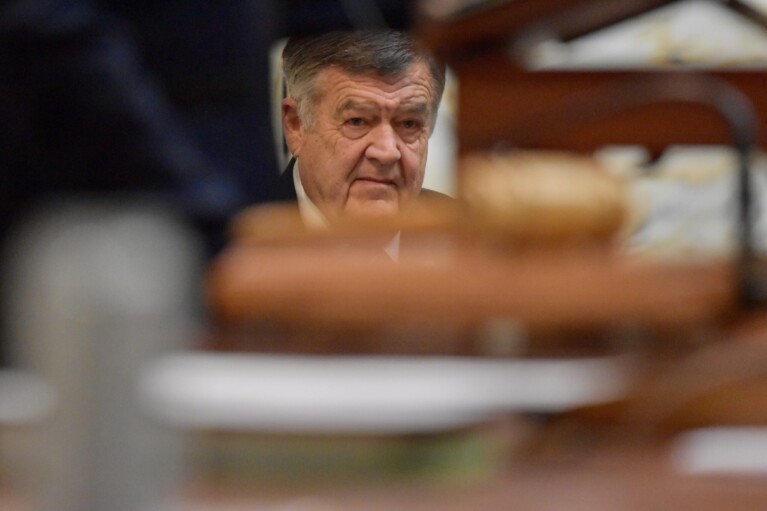Powerful Chairman Gets Feisty at Hearing on Controversial Utility Legislation

House Economic Matters Chair Dereck E. Davis (D-Prince George’s) on Thursday gave a spirited, almost caustic defense of his legislation to change the way electric utility companies in Maryland request rate increases.
Testifying before the Senate Finance Committee, Davis said his legislation giving utilities more flexibility when calculating rate increase requests was long overdue and nothing to be feared.
“You’ve got to block out the noise,” Davis advised the senators.
The Alternative Rate Plan bill has been one of the most heavily-lobbied pieces of legislation this General Assembly session.
But even though the utility companies and their regulators have been following the bill closely throughout the session, it has only attracted broader attention in the past few weeks. The Baltimore Sun and The Washington Post have both editorialized against it, and state Attorney General Brian E. Frosh (D) has suggested the legislation isn’t necessary.
The bill passed the House in a 83-51 vote two weeks ago.
“When I looked at the House vote, I was absolutely surprised,” said Sen. Edward Reilly (R-Anne Arundel), a member of the Finance Committee. “Bipartisan support, bipartisan opposition.”
Under current Maryland law, the Public Service Commission reviews utility companies’ costs from the previous year to determine what rates to set for the upcoming year. But the legislation allows for different ways to calculate ratepayer costs – including looking ahead to the strength of energy markets, the utilities’ financial stability, and even external forces like weather and climate.
Davis noted that similar rate-setting formulas are being used in 39 other states – including progressive states like California – and wondered why Maryland has been slow to adopt them.
Davis compared this legislation to bills from a decade-and-a-half ago to modernize Maryland’s oil and gas pipeline infrastructure. Critics of that measure, he recalled, also warned about entering into unchartered territory and the potential for price increases for consumers – which never panned out.
“That’s the same-old, same-old you hear every single time you try something new,” Davis said.
But the legislation ran into skepticism from some members of the Finance Committee, including the chair, Sen. Dolores G. Kelley (D-Baltimore County), who suggested her colleagues simply weren’t ready to change the ratemaking structure for electric utilities.
That same argument is being advanced by the state Public Service Commission, which regulates utilities, and the Office of People’s Counsel, which represents consumers’ interests before the PSC. Earlier this year, when the Finance Committee held a hearing on the Senate version of the bill, sponsored by Finance Vice Chair Brian J. Feldman (D-Montgomery), all five PSC commissioners testified against it.
Noting that he serves in a legislative body with 141 members, Davis was unimpressed.
“I laughed,” Davis said. “There’s five of them, appointed by the same governor. To get five people to do something – that’s not even a subcommittee, at least in the House.”
The hearing Thursday was attended by dozens of Annapolis’ top-earning lobbyists – most of whom were representing corporate electric and gas Utilities. Nevertheless, Kelley only allowed Davis to testify in favor of the measure and PSC Chair Jason M. Stanek to testify in opposition.
But even before Stanek could make the case against Davis’ bill, Kelley displayed her reluctance. She noted that the PSC had scheduled a technical conference to discuss alternative rate setting procedures for April 30, and suggested that committee members would be more comfortable acting on legislation like Davis’ after that event.
“I’m an old college professor and I would say you’re in the accelerated class,” Kelley told Davis. “We want to cooperate with the House. But we aren’t at your level of proficiency.”
But, of course, April 30 is three weeks after the end of the General Assembly session, meaning the conference would take place too late to salvage Davis’ legislation this year.
Davis complained that the PSC did not officially publish notice of its April 30 conference until Feb. 14, about a week after he had introduced his legislation. He also suggested that PSC commissioners’ resistance to the bill may amount to a “turf war,” because they don’t want the legislature dictating rate-setting schemes.
But Stanek testified that the commission had discussed setting up the conference as far back as last November, even though the formal notice did not go out until February.
Stanek said the commission was comfortable with the concept of alternative rate setting, but wanted to take more time to study its impact in Maryland before embracing Davis’ bill.
“We need to know the full effects” on Maryland ratepayers and the utilities that serve them, he said.
So, with 10 days until Sine Die, the Finance Committee will ponder the legislation a little bit longer – under scrutiny that no one really expected.
“If you had told me earlier this session that this would be one of the most closely watched issues of this session…I would not have believed it,” Stanek said.




 Creative Commons Attribution
Creative Commons Attribution